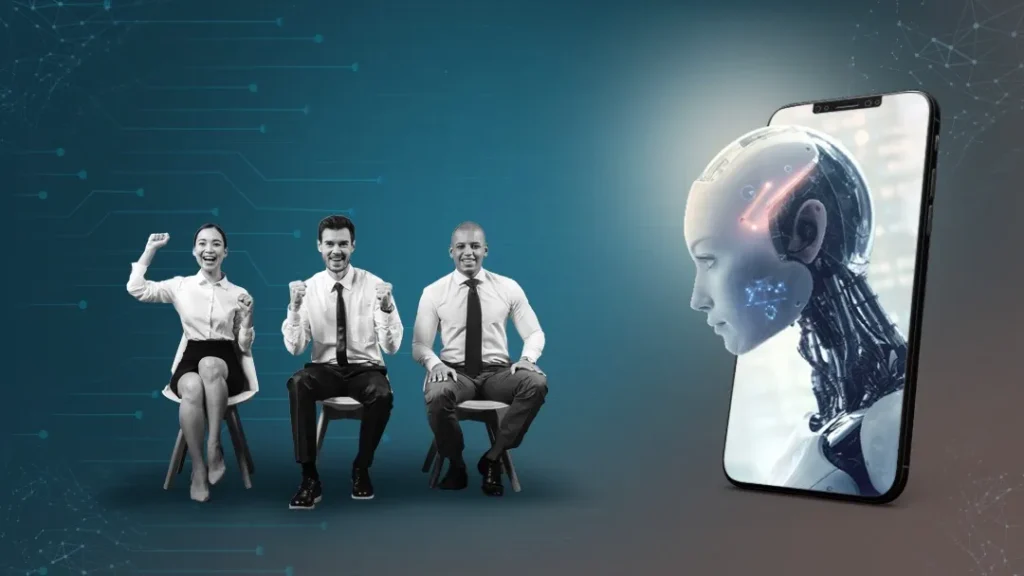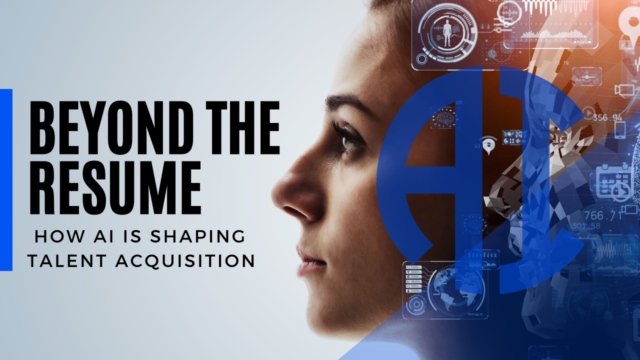In the dynamic world of talent acquisition, the role of artificial intelligence (AI) has transcended mere buzzwords, becoming a transformative force. From redefining traditional recruitment practices to enhancing decision-making, AI is helping organizations go beyond the resume to discover, evaluate, and engage talent in unprecedented ways.

1. Redefining Talent Discovery
AI-powered tools have revolutionized how recruiters source candidates. By scanning millions of profiles and job boards, AI algorithms identify potential hires based on skills, experiences, and even cultural fit. Tools like LinkedIn Recruiter, SeekOut, and others utilize natural language processing (NLP) to analyze job descriptions and match candidates far beyond keyword searches.
Case Study:
A leading tech firm used AI to identify software developers with non-traditional backgrounds (e.g., those from coding boot camps) by analyzing GitHub contributions, solving the industry’s acute talent shortage creatively.
2. Smarter Candidate Screening
Gone are the days of manually sifting through hundreds of resumes. AI-powered applicant tracking systems (ATS) filter and rank applications, providing recruiters with a shortlist of top candidates. Advanced platforms like Greenhouse and Lever even analyze patterns in data to predict a candidate’s potential success.
AI Feature Highlight:
- Sentiment Analysis: By analyzing cover letters or email interactions, AI can gauge a candidate’s enthusiasm and engagement level.
- Bias Detection: Tools such as Pymetrics ensure hiring decisions are free from unconscious biases, promoting diversity.
3. Enhancing Candidate Engagement
Chatbots like Mya and Olivia have redefined candidate experience. These AI assistants interact with candidates 24/7, answering FAQs, scheduling interviews, and updating application statuses in real time. Such technologies ensure no candidate feels ignored, significantly improving employer branding.

4. Data-Driven Decision Making
Recruiters now leverage AI-driven analytics to predict hiring outcomes. AI tools assess factors such as team compatibility, turnover risk, and cultural alignment to recommend the most suitable candidates. This ensures organizations make smarter hiring decisions that align with long-term goals.
Insight:
AI not only evaluates “hard” skills but can also analyze communication styles, problem-solving capabilities, and emotional intelligence through gamified assessments.
5. Transforming Talent Retention
AI doesn’t stop at hiring—it extends into retention. Predictive analytics can flag employees at risk of leaving, enabling HR teams to address issues proactively. Tools like Eightfold AI map career progression, offering employees tailored growth opportunities and reducing attrition.
Challenges on the Horizon
While AI brings innovation, it also raises concerns about:
- Privacy: How much candidate data is too much?
- Ethics: Is AI reinforcing hidden biases despite checks?
- Reliability: Can AI truly understand complex human behaviors?
Organizations must pair AI with human oversight, ensuring fairness and transparency.
Conclusion: Human-AI Synergy
As AI reshapes talent acquisition, it’s evident that the future lies in the synergy between technology and human judgment. While AI excels at data analysis, pattern recognition, and scalability, human recruiters bring empathy, intuition, and the ability to build genuine connections. Together, they create a hiring process that is efficient, unbiased, and deeply personal.
In the end, going beyond the resume means embracing a future where every candidate’s unique story is seen, understood, and valued—through the lens of AI and the heart of human judgment.










